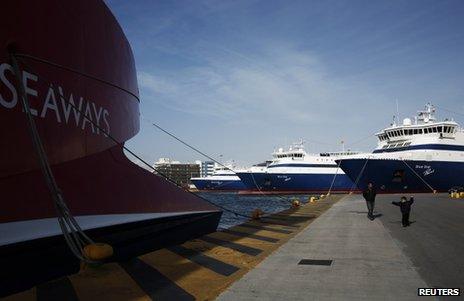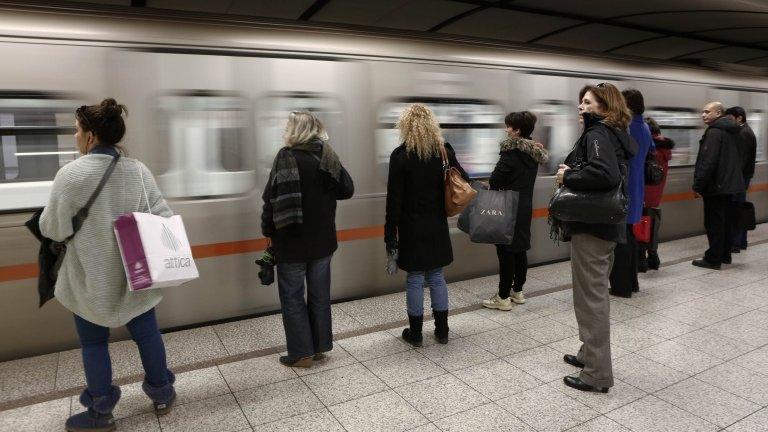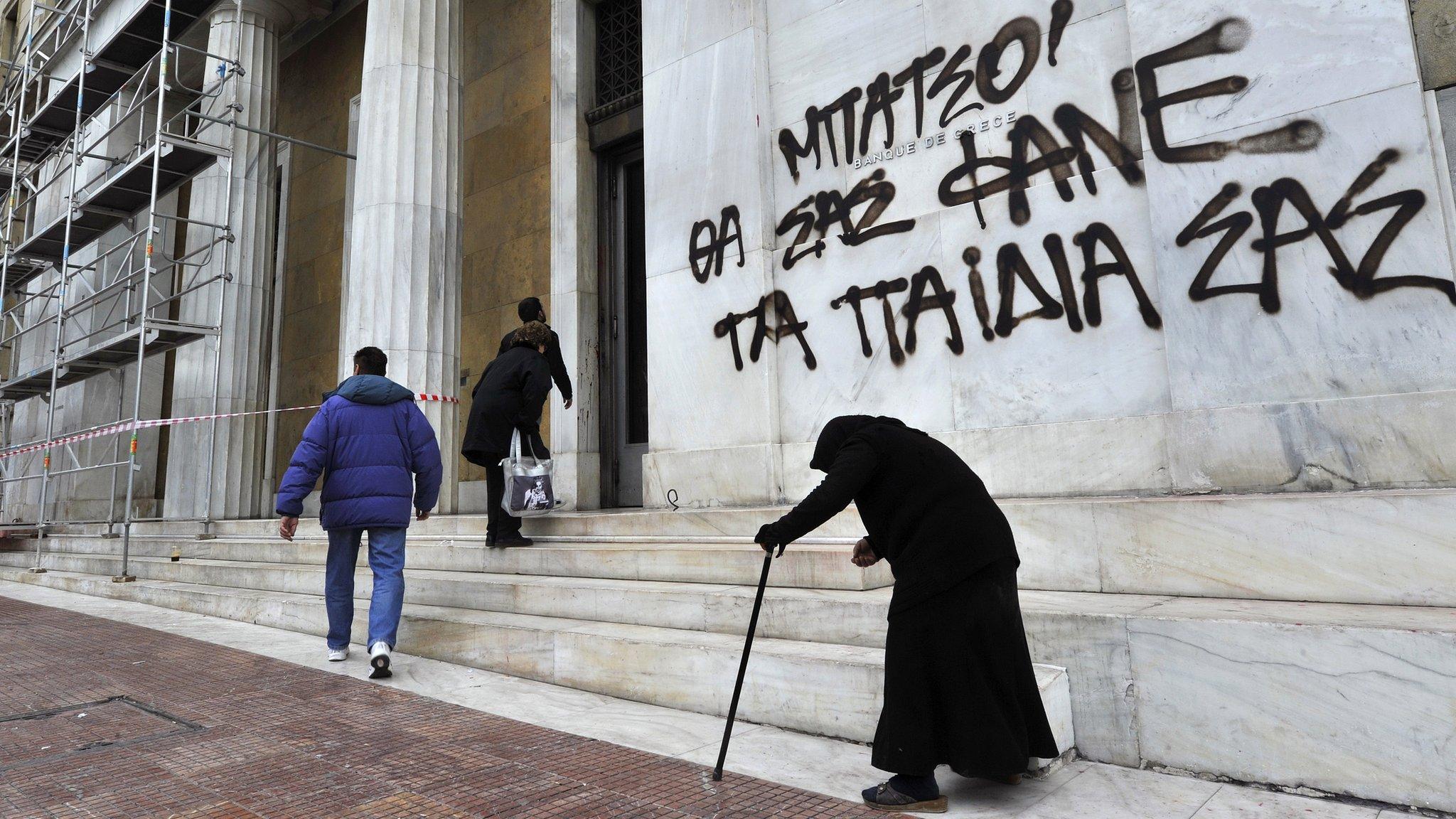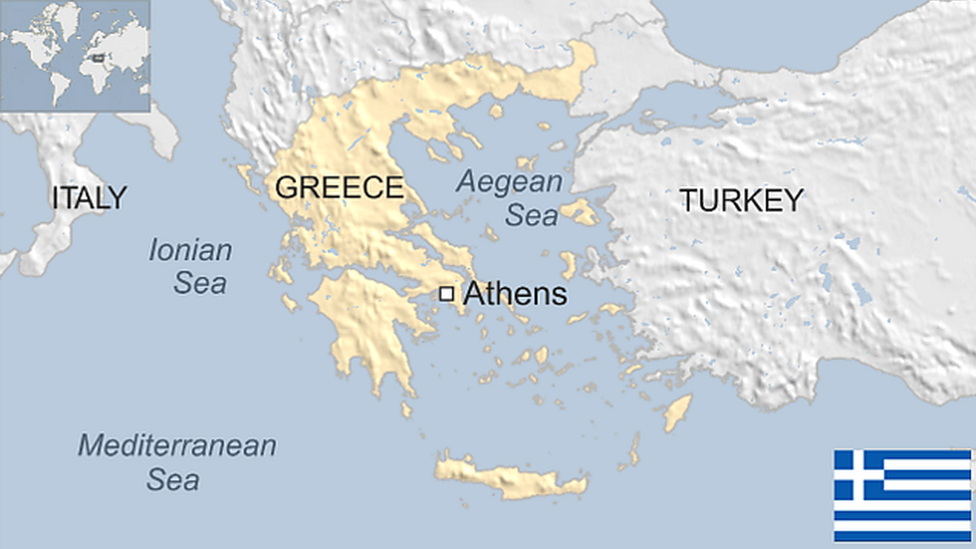Greece orders seamen back to work on 6th day of strike
- Published

The seamen have been under mounting pressure to return to work
The Greek government has invoked emergency powers to order maritime workers back to work after a six-day strike cut traffic to the islands.
Merchant Marine Minister Costas Mousouroulis said everything had been done to meet strikers' demands and he accused them of "petty politics".
One trade union leader has reportedly said that strikers will tear up the order and continue their action.
Workers who defy the order face jail terms of three months to five years.
The conservative-led government used the same powers to break a metro strike in Athens last month, drawing criticism from its junior partner.
It is trying to push through cuts and raise taxes in order to meet Greece's commitments under two huge financial bailouts by its EU partners and the IMF since May 2010.
In other industrial action, farmers across Greece have been parking their tractors near major motorways since last week, without disrupting traffic so far.
'No dialogue'
Workers manning ferry services to Greece's numerous islands have been demanding the payment of wages more than six months in arrears and the signing of collective work contracts with ferry companies.

Farmers have been threatening to block motorways
The strike was starting to have a serious impact on islanders. The chamber of commerce for the Cyclades, an island group in the Aegean Sea, reported shortages in goods and warned that serious health cases were going untreated and dead bodies were not being transported for burial.
Defending the use of the civil mobilisation act, Mr Mousouroulis said: "The government made every possible effort to satisfy the maritime workers' demands.
"Unfortunately, petty politics have left no room for dialogue."
But trade union official Antonis Dalakogiorgos was quoted as saying that seamen would resist the government orders.
"We will tear up this order... we will take all necessary measures to safeguard our struggle," he reportedly told Real FM radio.
During the Athens metro strike, Democratic Left, the smallest partner in the three-party ruling coalition, described the civil mobilisation order as "an extreme choice".
But it did not withdraw its support for the cabinet, led by Prime Minister Antonis Samaras's conservative New Democracy party, with the backing of the Socialist party Pasok.
- Published25 January 2013

- Published4 February 2013

- Published27 November 2012

- Published28 June 2023
